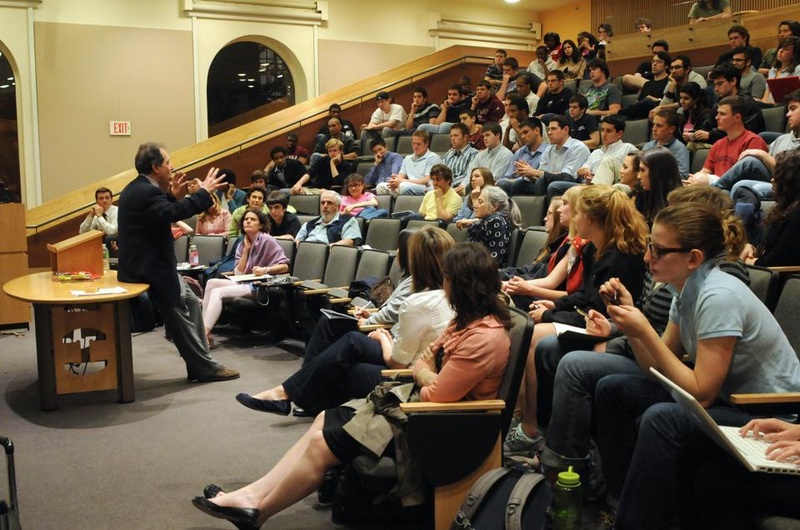An audience divided between women and apparent jocks crowded Fong Auditorium to attend a talk by Michael Kimmel, a researcher on men and masculinity and the author of “Guyland: The Perilous World Where Boys Become Men.”
As audience members passed up open seats to stand in the back of the auditorium, Kimmel noted that a number of men were sitting with empty seats between them.
“It’s like how guys always go to the movies and leave two seats between them,” he said. “Why do they do that? Because they don’t want anybody to think they may be to-ge-ther.”
Kimmel said that being perceived as gay is the ultimate challenge to masculinity.
“All of male behavior is constantly policed and scrutinized to make sure it doesn’t look gay,” he said. “Young men are desperate to prove their masculinity, and they often do it in high risk-taking ways.”
He said that the modern emergence of young adulthood, or “adultolescence,” has created a culture in which men assert their masculinity in ways that deepen gender inequality.
He said that in spite of progress toward gender equality from factors like economic change, new trends in parenting, longer lifespans, and the women’s movement, men—and especially white, middle-class, college-educated men—often continue to express themselves as superior.
Audience members noted that the talk seemed to overstate the prevalence of such homophobic and womanizing behavior.
“His talk was focused on what’s going on with guys smack-dab in the middle of Guyland, which doesn’t strike me as a comprehensive picture of all the men in this age range,” said Gina Helfrich, assistant director of the Harvard College Women’s Center. “Still, I think it’s important research because the experience of this privileged group has an impact on everybody else.”
Kimmel also addressed how to put an end to sexual assault.
“We need to bring men into this, and I have this idea how,” he said, reaching for a round piece of rubber with holes in it.
“It’s a urinal thing!” he exclaimed, noting that the “thing,” technically called a splashguard, could serve a social role by being emblazoned with the message, “You hold the power to stop rape in your hand.”
“Once you’re laughing, your defenses are down, so you actually have to think about it,” Sigma Chi brother Joshua D. Foote ’10 said of Kimmel’s suggested tactic to prevent sexual assault.
Foote added that he appreciated Kimmel’s focus on the social rather than legal implications of stopping sexual assault.
“What we need is societal change in the perception of what manhood is,” he said.
The talk, which was part of the Office of Sexual Assault Prevention and Response’s Sexual Assault Awareness Month, was sponsored by several male groups on campus: Sigma Chi Fraternity, Alpha Epsilon Pi, the Owl Club, the Asian American Brotherhood, and the Harvard football team.
—Staff writer Alice E.M. Underwood can be reached at aeunderw@fas.harvard.edu.














